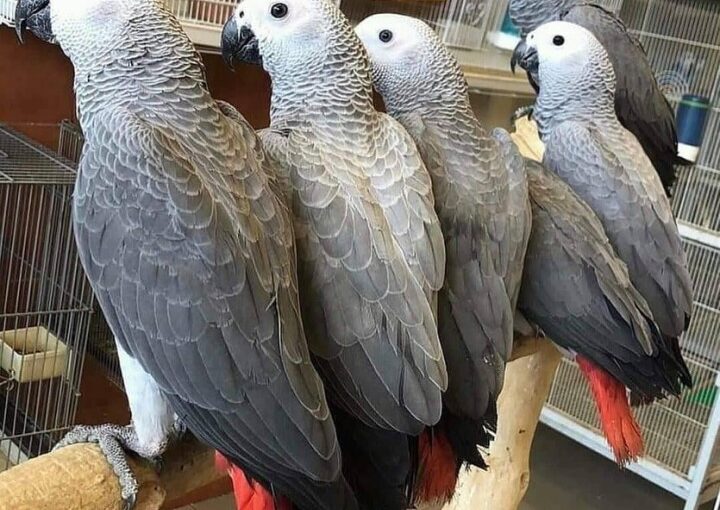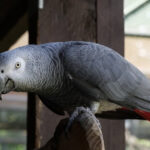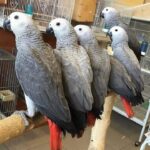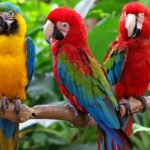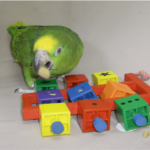If you’re considering adding an African Gray Parrot to your home, you’re probably wondering about the price of an African Gray Parrot and what factors influence the cost. These intelligent, charismatic birds are known for their remarkable talking ability and affectionate personalities, but like any pet, they come with financial responsibilities. In this comprehensive guide, we’ll break down the African Gray Parrot cost, explain what to expect when bringing one home, and explore their needs, including diet, training, and care. We’ll also touch on what makes them such amazing companions, from their talking abilities to their quirky personalities.
Why Are African Gray Parrots So Expensive?
The price of an African Gray Parrot varies depending on several factors, but generally, they are one of the more expensive pet birds available. On average, you can expect to pay anywhere between $800 to $3,500 for a healthy, well-bred bird. Let’s take a look at why these birds can be so pricey.
1. Rarity and Demand
African Gray Parrots are highly sought after due to their intelligence and exceptional mimicry skills. They’re often regarded as the best talking birds, able to learn and mimic hundreds of words and phrases. Because of their reputation, there’s a high demand for African Grays, which drives up the cost. Additionally, they are now protected under international wildlife regulations due to concerns about over-trapping and illegal trade, meaning fewer are available on the market.
2. Breeder Quality
If you’re buying from a reputable breeder, the cost of an African Gray Parrot can be higher. High-quality breeders invest in the health, diet, and socialization of the birds, ensuring they are disease-free and well-adjusted to human interaction. Purchasing from a breeder who follows proper guidelines can increase the cost, but it also means you’re likely getting a healthy bird that has been properly cared for.
3. Subspecies
There are two main subspecies of African Gray Parrots: the Congo African Gray and the Timneh African Gray. The Congo African Gray is the more common and larger of the two, typically more expensive due to its popularity. The Timneh African Gray, which is smaller and darker, may be slightly less expensive but still has all the remarkable traits of the Congo variety.
4. Age and Training
Young African Grays are often more expensive than older ones. If you’re purchasing a bird that has been hand-raised and trained to be more social and interactive with humans, the price will reflect that additional care. Some sellers also train their birds to talk, and an African Gray Parrot talking already when purchased can cost more because of this added feature.
What Does It Take to Care for an African Gray Parrot?
Owning an African Gray is not just about the initial cost; ongoing care and maintenance are essential to keeping these birds happy and healthy. Let’s look at some key aspects of African Gray care, including their diet and personality.
1. African Gray Parrot Diet
A well-balanced diet is crucial for the longevity and health of your African Gray Parrot. A healthy African Gray Parrot diet consists of:
- High-Quality Pellets: These are a staple in their diet, ensuring they get the essential nutrients.
- Fresh Fruits and Vegetables: African Grays enjoy a variety of produce, including apples, carrots, broccoli, and spinach. Just make sure to avoid toxic foods like avocado and chocolate.
- Nuts and Seeds: These can be offered as treats but should be given in moderation due to their high-fat content.
- Protein: Occasionally, African Grays can have boiled eggs, cooked chicken, or legumes for a protein boost.
Providing a varied diet is important because African Grays can be prone to deficiencies if fed an inadequate or monotonous diet. Water should also be clean and fresh daily to avoid dehydration and other health issues.
2. Exercise and Enrichment
African Grays are highly intelligent birds that require plenty of mental stimulation and physical exercise to thrive. In the wild, these birds would be flying and foraging throughout the day, so it’s important to replicate this behavior in captivity. Without adequate exercise and toys to chew on, African Grays can become bored and even develop behavioral issues.
Providing your bird with puzzle toys, rotating new toys regularly, and spending time interacting with them can prevent destructive habits. Many owners also use training sessions to teach their birds tricks and new words, which helps mentally stimulate them.
3. Talking Ability
One of the biggest draws of owning an African Gray Parrot is its impressive talking skills. These birds are often referred to as the “Einsteins” of the bird world due to their incredible cognitive abilities. An African Gray Parrot talking can learn hundreds of words, phrases, and even mimic sounds from its environment, like phones ringing or doors creaking.
Not all African Grays will start talking right away, though. It takes patience and time, but with consistent training, most African Grays will eventually pick up human speech. Some birds are capable of forming coherent sentences and responding in context, showing just how intelligent they truly are.
Understanding African Gray Parrot Behavior
African Grays are highly social birds and often form strong bonds with their owners. However, they are also known for their mood swings. Some owners report that their bird can sometimes exhibit what is known as a “mean African Gray Parrot” phase.
1. Why Some African Grays Get Moody
African Grays are very sensitive to their environment and may react negatively to changes or stress. A bird might become nippy or aggressive if it feels neglected, bored, or threatened. However, these behaviors can usually be managed through positive reinforcement, proper socialization, and ensuring the bird has enough mental stimulation.
2. Socialization and Bonding
Spending quality time with your bird, talking to them, and including them in daily activities can strengthen your bond. Many African Grays develop strong attachments to one person in the household, but it’s important to encourage socialization with multiple people to avoid the bird becoming too dependent or territorial.
How to Choose the Right African Gray Parrot
If you’re ready to bring an African Gray into your life, there are a few important things to consider before purchasing. Knowing the price of an African Gray Parrot is just the first step; you also need to be aware of where to buy from and how to prepare your home.
1. Finding a Reputable Breeder
As mentioned earlier, buying from a reputable breeder is key to ensuring your bird is healthy and well-adjusted. Avoid purchasing from pet stores or online sources that cannot provide proper documentation, such as the bird’s health records or CITES certification (required for protected species). Always visit the breeder in person if possible, and ask questions about the bird’s history, care, and diet.
2. Setting Up Your Home
African Grays need space to thrive. A large cage with plenty of room to move around is essential, as is time outside of the cage for exercise and interaction. Parrots are messy, so expect to clean up food, feathers, and droppings regularly.
You’ll also want to make sure you have all the necessary supplies on hand before bringing your bird home, including perches, toys, food bowls, and grooming tools.
Is an African Gray Parrot Worth the Investment?
The African Gray Parrot cost is undoubtedly high, but for many bird enthusiasts, these charming, intelligent creatures are well worth the price. Their talking ability, affectionate personalities, and longevity make them a rewarding pet for the right owner. However, they are a long-term commitment, often living 40-60 years, and require a lot of care and attention.
If you are ready to make the investment and bring an African Gray Parrot into your home, you can find a wide selection of birds available on our website, Talking Parrot Home. We offer competitive prices and ensure that each bird is healthy, socialized, and ready to become part of your family. Take the time to research and prepare, and you’ll soon discover why African Grays are considered one of the best pet birds in the world.

